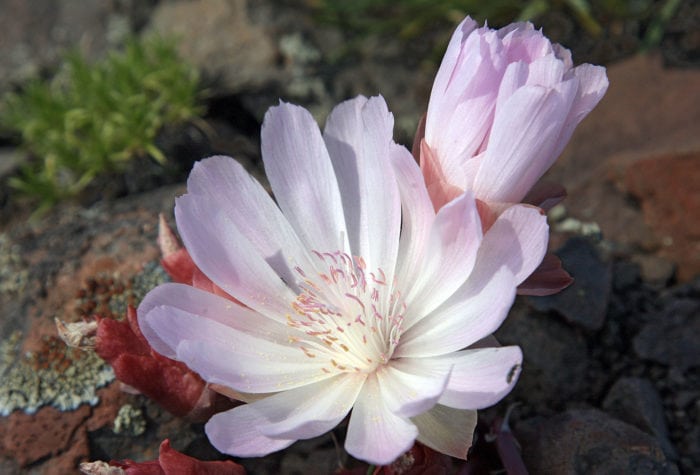Canceled: Cottonwood Canyon Riparian Restoration
Mark Molner
Organizer: Beth Macinko
Start Date: 4/9/2020
End Date: 4/12/2020
Region: John Day River Basin River Basin
Difficulty Rating: 3 out of 5
Maximum Group Size: 20 participants
About the place
Cottonwood Canyon State Park is one of Oregon’s newest state parks. Formerly the Murtha Ranch, this 8,000-acre paradise exemplifies the rugged beauty of the John Day River territory with remarkable canyons, tall plateaus and sweeping sage-covered views. Cottonwood is home to bighorn sheep, pronghorn antelope and elk, and the John Day River running through it is laden with chinook, steelhead and other species of native trout.
View the map.
About the stewardship work
This project involves restoring three miles of riparian habitat along Hay Creek, a steelhead rearing tributary of the John Day. Historic overgrazing, cycles of flood and drought, and recent wildfires have resulted in a creek eroded up to 20 feet below its surrounding floodplains, and very little native plant diversity. The four-year Hay Creek restoration project (now in its third year of implementation) will involve protecting existing vegetation from browse, building beaver dam analogs (BDAs) to provide irrigation to dry floodplains to make them suitable for planting, and installing a large number of diverse, native riparian plant species.
On this trip, ONDA volunteers will prepare planting exclosures by strategically placing cardboard and dirt as a weed barrier to improve the success of new plantings. Volunteers will then plant willow and cottonwood cuttings within protective exclosures built the year before. Volunteers can rotate as desired through tasks such as digging holes and planting plants, hauling dirt, and installing cardboard weed mulch.
No experience or special equipment necessary, just a willingness to learn. Some tasks will be physically strenuous, but there are plenty of tasks which are not, or can be accomplished at a pace appropriate to your specific abilities.
Trip highlights and challenges
- Navigating steep incised stream banks and potentially variable fall temperatures.
- A major feeling of accomplishment in being part of work which will fundamentally improve three miles of creek and eventually insulate it from the impacts of climate change.
Trip timeline
- Thursday, April 9, 5 p.m.: We will meet at the Cottonwood Canyon Campground. After dinner, we’ll have time to talk more in-depth about the coming days’ work and its significance in the bigger picture.
- Friday, April 10, 8 a.m.: After breakfast, we’ll drive to the worksite in Hay Creek and begin the rewarding work of weed suppression and planting. We’ll be away from camp until 4 p.m.
- Saturday, April 11, 8 a.m.: After breakfast, we’ll drive to the worksite in Hay Creek and begin another rewarding day of weed suppression and planting. We’ll be away from camp until 4 p.m.
- Sunday, April 12: After coffee, we will break down camp and volunteers have the choice of exploring Cottonwood Canyon more thoroughly or heading home.
Camp
We will be camping in the luxurious Cottonwood Canyon State Park Campground. There is potable water onsite, bathrooms and kitchen shelters.
Difficulty
The work will require walking approximately two miles each day, kneeling down and digging holes for plants, and carrying a daypack with food, water and ample clothing to stay warm and dry in variable conditions.
Participant responsibilities
Participants are responsible for their own food and camping gear as well as transportation to and from the trip (don’t forget your camp chair!). ONDA will bring water, but it is a good idea to supplement our supply with a few gallons from home. In the event of sunny and hot weather, please bring up to four liters of water capacity for the day, and consider an electrolyte replacement drink or mix to help you stay hydrated. Sturdy off-trail ankle-high boots, long pants, a long sleeve shirt (a lightweight sun shirt is a great option), and eye protection are required for this trip (sunglasses or prescription eyeglasses are suitable eye protection). Participants should be prepared to be away from camp all day and bring a daypack for lunch, snacks, and water.
Gear Provided
ONDA will provide tools for the work, work gloves, and sunscreen. ONDA will bring some group camping equipment (shade tent, tables for cooking, and wash bins for kitchen cleanup), potable water, and expert leadership.
Registration
An ONDA registration application and medical form are required for this trip. Check the box next to each trip you would like to attend. You only need to fill this form out once per year.
Apply Now
What happens next?
You will receive a confirmation email within 10 working days of submitting your form. The confirmation email will provide information regarding which trips you are on the “participant list” for, and which trips are full, and therefore you have been placed on the “waitlist.”
Six weeks before the start of the trip, the trip leader will send out an RSVP to make sure everyone is still able to participate. Based on RSVPs, open spaces will be backfilled with people from the waitlist.
Three weeks before the trip start date, registered and confirmed participants will receive driving instructions, maps, carpooling options, and additional information in an email sent by the trip leader
If you have any questions in the meantime, please don’t hesitate to contact the trip leader.
